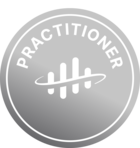When we founded Cognite four years ago, one of the success criteria we envisioned was that a developer should be able to write a useful industrial application within one hour of being onboarded to Cognite Data Fusion. Coming from the consumer software industry, we did not quite realize how ambitious that was until later.
Just think of what it was like to write a mobile phone application 15 years ago. There was no iOS or Android. If you were lucky, you would be writing custom J2ME code for each handset. And there were thousands of different ones, all doing things differently. Fast forward to today, and it is possible for a committed developer to write and distribute a mobile application that runs on most smartphones in the world in a weekend.
The industrial world has a similar fragmentation issue that Android and iOS addressed a decade ago. Hundreds of different OT (Operational Technology) systems are present even within a single mid-sized industrial company. They do things slightly differently. It is hard to correlate and connect data across these, and you need to, if you want to solve valuable problems at scale. Not to mention scaling that solution or application across different industrial companies. And for the industrial world to really accelerate innovation, it needs to be easily scalable across companies.
While we are certainly far from reaching our goal of the one-hour industrial application, we have made important progress: The first two years, we were focused on Data Liberation - the process of extracting data from multiple sources and making it easily and instantly accessible “like oxygen in the air”. Then we focused on contextualization - connecting data entities from different sources together into an intuitive, connected data model (“industrial knowledge graph”). Today, the word “DataOps” summarises the focus of operationalizing the flow of data from source into refined data products ready for consumption and operationalization, with proper governance, lineage, monitoring and schemas to fit each use case.
Another significant milestone is the launch of the Cognite Hub developer community. We hope that it will enable others than just Cogniters to write great applications that take advantage of all the work Cognite has done in DataOps, as well as the many open source tools, SDKs and frontend components that we have made available while developing our own applications. Not only that, but I wish that we will be sharing best practices and solving problems together. We will also listen carefully to the community’s feedback and try to turn that into improvements in Cognite Data Fusion. During February, we deployed an average of 1800 changes to production every week, and the number is increasing.
I want to thank you for being part of this journey with us. It has been an exciting four years, but we have many more ahead of us! Please reach out when you have questions or see things that can be improved. That is the fastest way for all of us to move forward, together.
Geir K. Engdahl, CTO and co-founder


 Check the
documentation
Check the
documentation Ask the
Community
Ask the
Community Take a look
at
Academy
Take a look
at
Academy Cognite
Status
Page
Cognite
Status
Page Contact
Cognite Support
Contact
Cognite Support

